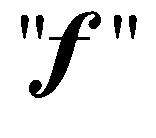MATRE
Concerto for Percussion and Orchestra
Score


Concerto for Percussion and Orchestra
Score

Commissioned by Hans-Kristian Kjos Sørensen (2021) for Percussion and Orchestra
Solo percussion
Flute 1, doubling Piccolo
Flute 2, doubling Piccolo
Oboe 1
Oboe 2
Clarinet in B b 1
Clarinet in B b 2
Bassoon 1
Bassoon 2
Horn in F 1
Horn in F 2
Horn in F 3
Horn in F 4
Trumpet in C 1
Trumpet in C 2
Trumpet in C 3
Tenor Trombone 1
Tenor Trombone 2
Bass Trombone
Tuba
Strings
The score is transposed.
Durata: Approximately 25 minutes
Commissioned by Hans-Kristian Kjos Sørensen. First performance by Hans-Kristian Kjos Sørensen and Kristiansand Symphony Orchestra (Conductor: Tabita Berglund) October 21st 2021 in Kilden Performing Arts Centre, Kristiansand.
Snare drum (snares off)
Temple blocks (5)
Metal Blocks (5)
Bongos (2)
Tom-Toms (5)
Tuned Metal Bars (4 pitches)
Glockenspiel
Vibraphone (with motor)
Cow bells
Sleigh bells
Guiro
Vibraslap
Gliss gongs (2)
Rattling metal - suspended (2)
Cymbals played with bow (3-4)
Tuned gongs (7 pithces)



Dynamic markings with quotation marks indicate the intensity of the performance action and not the resulting absolute volume of the action.
Quarter tone flat/sharp
1/6 tone flat, always representing the 7th harmonic











Diminuendo al niente
Flutter tongue
Brass: valve tremolo
Winds/Brass: Air sound - no pitch. Air sounds on bassoons can be produced by blowing a few centimeters from the reed.
Trumpets/Trombones: Closed harmon mute Horns: Stopped horn
Trumpets/Trombones: Open harmon mute Horns: Not stopped
Trumpets/Trombones: A quick tremolo effect with the hand rapidly covering and opening the exit of a harmon mute.
Strings: Circular bowing (i.e. sul pont. ↔ sul tasto). The sounding result should be vague and unstable, but still with a clear projection of the notated pitches.
Strings: Hit (do not pluck) the middle of the string gently with the finger while fingering the notated pitch. The result should be a vague trembling sound.
Strings: Highest possible pitch on given string.
Heavy bow pressure, destroyed sound.
All trills should span a minor second up, unless otherwise indicated by a note in parenthesis. When a trill to the same note is indicated, use an alternate fingering.
Multiphonics (Clarinet 1) are notated with suggested fingerings and the desired pitches. If the given fingering does not work, the player is encouraged to explore alternatives that will preserve the notated pitches as faithfully as possible.
Flutter tongue if
gliss. gliss. gliss. gliss. gliss. gliss. gliss. gliss. gliss. gliss. gliss. gliss. gliss. gliss.
gliss. gliss. gliss. gliss.
*The musicians should whistle the notated pitches, micro variations in pitch are
Shift of octaves (up or down) is possible, but not desirable. For rehearsal purpose, the flute players
musicians should whistle the notated pitches, micro variations in pitch are intended. Shift of
Tranquillo q»56
Tranquillo q»56
Tranquillo q»56

For more than 200 years, Edition Peters has been synonymous with excellence in classical music publishing. Established in 1800 with the keyboard works of J. S. Bach, by 1802 the company had acquired Beethoven’s First Symphony. In the years following, an active publishing policy enabled the company to expand its catalogue with new works by composers such as Brahms, Grieg and Liszt, followed in the 20th century by Richard Strauss, Arnold Schoenberg and John Cage.
Today, with its offices in Leipzig, London and New York publishing the work of living composers from around the world, Edition Peters maintains its role as a champion of new music. At the same time, the company’s historic and educational catalogues continue to be developed with award-winning critical and pedagogical editions.
Seit über 200 Jahren steht die Edition Peters für höchste Qualität im Bereich klassischer Notenausgaben. Gegründet im Jahr 1800, begann der Verlag seine Tätigkeit mit der Herausgabe von Bachs Musik für Tasteninstrumente. Schon 1802 kamen die Rechte an Beethovens erster Sinfonie hinzu. In der Folgezeit wuchs der Katalog um neue Werke von Komponisten wie Brahms, Grieg und Liszt sowie – im 20. Jahrhundert – Richard Strauss, Arnold Schönberg und John Cage.
Als Verleger zahlreicher zeitgenössischer Komponisten aus aller Welt ist die Edition Peters mit ihren Standorten Leipzig, London und New York auch weiterhin Anwalt neuer Musik. Zugleich wird das Verlagsprogramm im klassischen wie im pädagogischen Bereich kontinuierlich durch vielfach preisgekrönte Ausgaben erweitert.